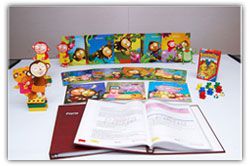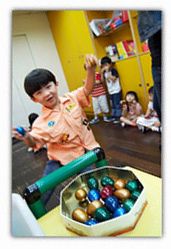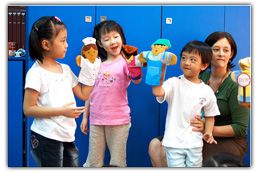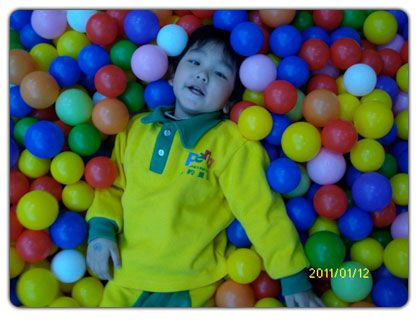

3 to 6
Primary, Junior, Senior Class

Textbook- 12 levels

EQ Land System leads children to tell their feelings through storytelling and role-play. It helps them to describe how they really feel, why they feel it, and how the problems can be solved.
By projecting their true feelings through games or role-play greatly helps children to reveal some hidden emotions. Once children have the abilities to understand how they feel and how the others feel, they will gradually be able to solve problems in a group thus conflicts may be easily avoided.


EQ Land System (EQLS) helps children to reinforce and instill the following abilities through storytelling, role-play, group discussion, games and activities: Problem Solving, Language Development, Group Interaction. More achievements for different groups are shown as following:
Primary Class:
To be able to understand their own feelings and reactions through storytelling. We also hope to reinforce the problem solving ability of this group of learners.
Junior Class:
To reinforce children’s thinking ability through role-play and different scenarios of games. To learn to understand different reactions of various emotions in order to strengthen their problem solving ability. To inspire children's empathy and sympathy towards the others.
Senior Class:
To encourage children to care for lives, and for the others; be grateful and thankful to embrace what they have through teamwork learning environment.

 Four main steps of teaching EQLS with the wide use of puppets, stick-puppets based on different stories:
Four main steps of teaching EQLS with the wide use of puppets, stick-puppets based on different stories:
Warm up
Story Time
Story Related Activities
Wrap Up
Teachers will apply these 4 steps in each lesson.
Warm Up:
Emotion related vocabularies are introduced in songs, rhymes or games to children. Review is relevantly necessary in this step.
Story Time:
Telling different stories to children with the use of stick-puppets in order to inspire the abilities of self-cognition and care for others.
Story Related Activities:
These story related activities help children learn how to share, wait for their turn, follow the rules, mutual corporation and other basic social skills.
Wrap Up:
At the end of each lesson, children will share what they have learned of the day in their own words and listen to the others simultaneously. More importantly, they experience the happiness of being responsible when packing away after the story related activities.

1. Flash cards:
Teachers will tell various EQ Land theme-based stories with colorful flashcards to children who learn to be a good listener and verbal expressions.
2. Puppets:
Children can practice effectively on their speaking and listening through stories with puppets or stick-puppets. Verbal expression can also be reinforced in a role-play or story related activities. Furthermore, the hidden emotions can be revealed during these activities or class discussions.

Through flashcards, stick-puppets and daily-life-related games, children gain the abilities of peer interaction and problem solving, and they can also instill self-confidence and sense of gratitude.
1. Based on Cognitive Learning Theory
According to child development, cognitive learning can be divided into four steps:
a. Knowing oneself: To understand his or her own emotions, and manage self-emotions,
therefore to build self-esteem and self-confidence.
b. Others and I: To make friends by knowing the differences among the others and
respecting the others.
c. Group interaction: To instill empathy for others, practice social etiquette, learn
how to share and build team spirit.
d. Team work: To cultivate leadership, problem and conflicts solving skills, build
communication skills and benign competition attitude.
2. Based on Cognitive Behavioral Theory
a. Psychological projection: To interpret children's behavior motives.
 b. Behavior correction: To change children's
b. Behavior correction: To change children's
behavior habits.
c. Drama activity: To relieve children's emotion
changes.
d. Behavior exercise: To re-modify behavior
patterns.
e. Knowing oneself: To instill self-confidence.
f. Experience sharing: To have empathy for others.



